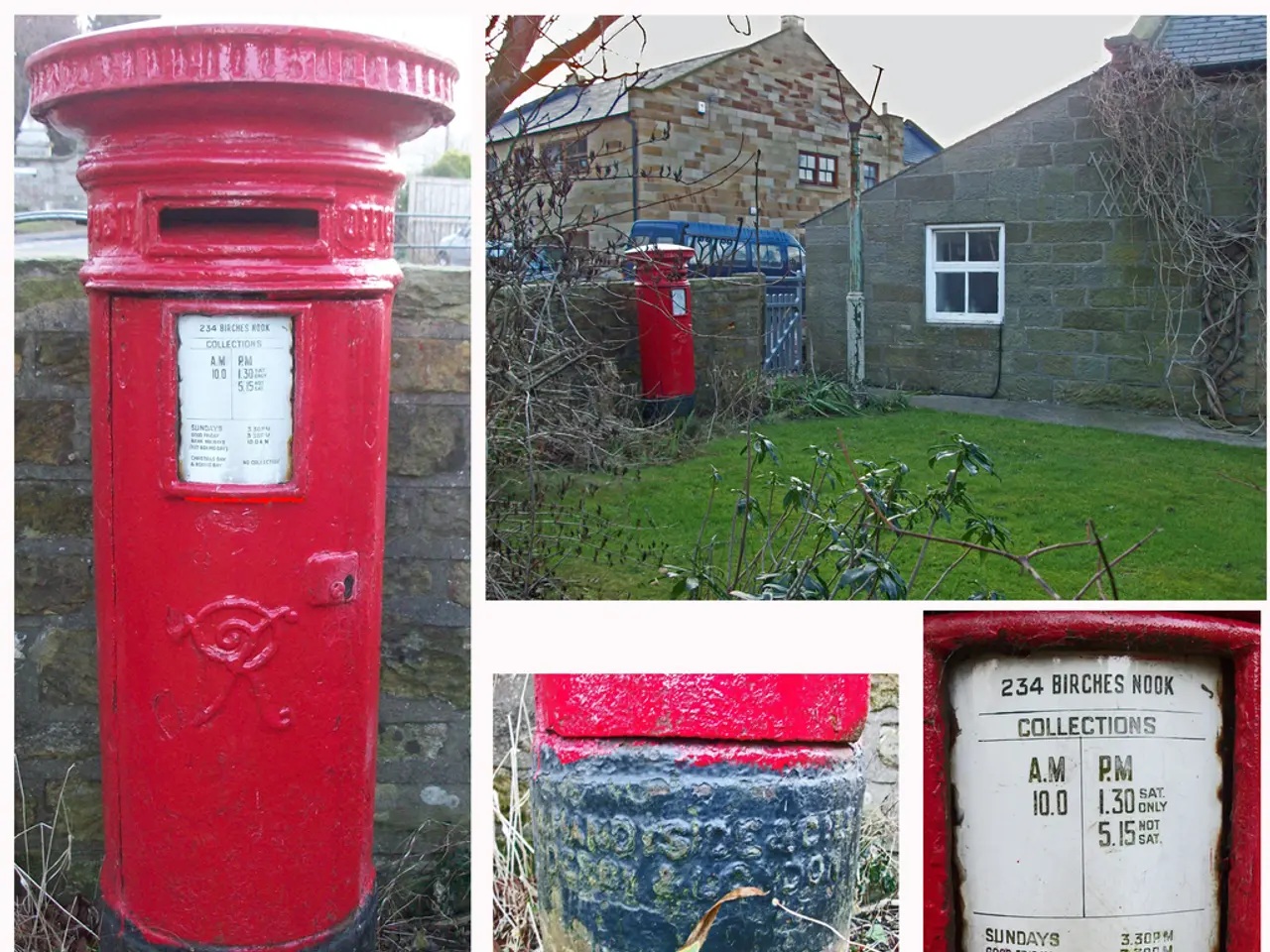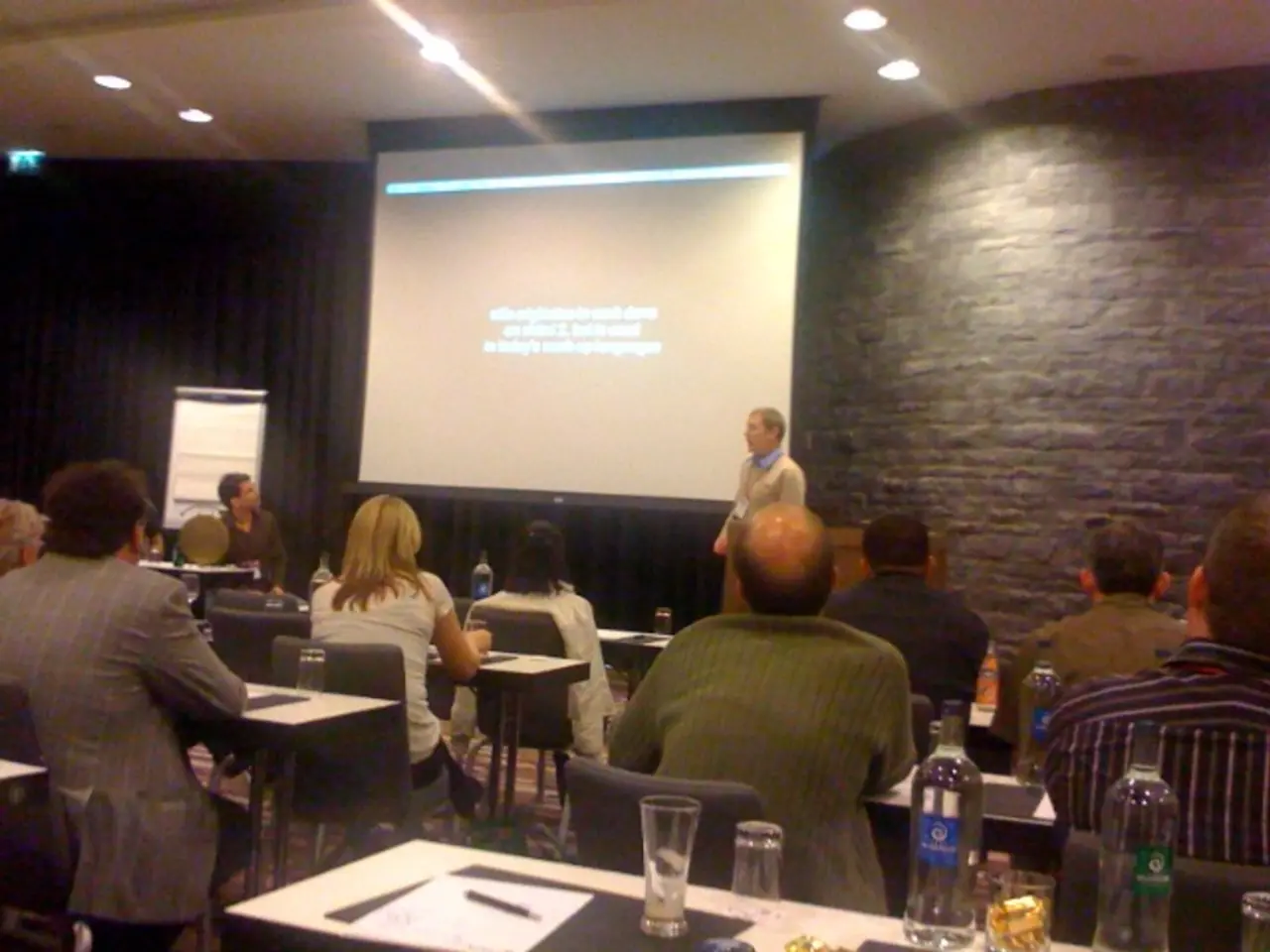Effort unveiled for securing Cambridge's limestone waterways
The Greater Cambridge Chalk Stream Project (GCCSP), a groundbreaking initiative, is set to launch at Anglia Ruskin University (ARU) on July 16. This project, a joint venture between Cambridge City Council and ARU, aims to study and preserve the chalk streams in the Greater Cambridge area, particularly Hobson's Brook and Cherry Hinton Brook [1][3].
Chalk streams, known for their clear, clean water that supports a diverse array of wildlife, are under threat due to factors such as water extraction, pollution, riverbank erosion, and invasive species [1]. The GCCSP aims to address these challenges by studying the threats faced by these watercourses, identifying practical ways to protect them, and fostering a strong connection between citizens and their local freshwater environments [1][2][3][4].
The project's objectives include studying pollution, sediment build-up, microplastics, and chemical contaminants like PFAS, as well as developing innovative science-led approaches that combine hydrology, ecology, and community engagement [1][2]. The project also focuses on restoring habitats critical for species like brown trout and using macroinvertebrates as bioindicators to monitor stream health [2].
Citizen science plays a significant role in the GCCSP, with local residents invited to contribute to water quality monitoring and biodiversity surveys [2]. These activities allow the public to collect water samples, observe aquatic life, and participate in educational events that explain the science behind chalk streams and the impacts of urban development [2].
The project's launch will be marked by a free conference at ARU, featuring talks from leading environmental scientists on topics such as groundwater depletion, sediment loading, aquatic biodiversity, and emerging contaminants [4]. The conference will also provide information about each local chalk stream, helping to inform Cambridge City Council's restoration strategies and safeguard the chalk streams for future generations [3].
The GCCSP is more than just a research project; it's an opportunity for citizens to get involved and learn about their local freshwater environments. For those interested in attending project events or becoming citizen scientists, keeping an eye on announcements via ARU or Cambridge City Council channels is recommended [1][2][3][4].
References: [1] Cambridge City Council. (2021). Greater Cambridge Chalk Stream Project. Retrieved from https://www.cambridge.gov.uk/greatercambridgechalkstreamproject [2] Anglia Ruskin University. (2021). Greater Cambridge Chalk Stream Project. Retrieved from https://www.aru.ac.uk/greater-cambridge-chalk-stream-project [3] Cambridge News. (2021). New project aims to protect Cambridge's chalk streams. Retrieved from https://www.cambridge-news.co.uk/news/cambridge-news/new-project-aims-protect-cambridges-17515586 [4] East Anglian Daily Times. (2021). New project to protect Cambridge's chalk streams launched. Retrieved from https://www.eadt.co.uk/news/new-project-to-protect-cambridges-chalk-streams-launched-1-7604289
- The Greater Cambridge Chalk Stream Project, happening at Anglia Ruskin University, is intended to study and protect chalk streams in the Greater Cambridge area, focusing on watercourses like Hobson's Brook and Cherry Hinton Brook.
- This project will research various threats to chalk streams, such as pollution, sediment build-up, microplastics, and chemical contaminants like PFAS, and will develop innovative approaches to address these challenges.
- Moreover, the project includes a focus on health-and-wellness, inviting local residents to contribute to water quality monitoring and biodiversity surveys, providing opportunities for citizens to learn about their local freshwater environments.
- The project also plans to study climate-change and environmental-science aspects, including groundwater depletion, sediment loading, aquatic biodiversity, and emerging contaminants, as part of its free conference at ARU.
- Lastly, interested individuals are encouraged to stay updated on project events and becoming citizen scientists by following announcements through Anglia Ruskin University or Cambridge City Council channels.




